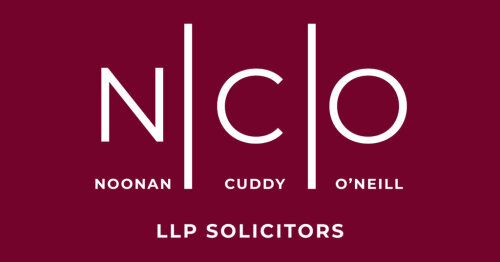Best Accidents & Injuries Lawyers in Loughrea
Share your needs with us, get contacted by law firms.
Free. Takes 2 min.
List of the best lawyers in Loughrea, Ireland
About Accidents & Injuries Law in Loughrea, Ireland
Accidents and injuries can happen at any time, whether at work, on the road, or in a public place. In Loughrea, Ireland, the law provides for individuals who have been injured due to the negligence or wrongdoing of another person or organisation. Accidents and injuries law, often referred to as personal injury law, allows those harmed to seek compensation for their losses such as medical expenses, loss of earnings, pain and suffering, or damage to property. The aim is to help restore the injured party, as much as possible, to the position they were in before the accident.
Why You May Need a Lawyer
Navigating accidents and injuries claims can be complex and stressful. You may need a lawyer for many reasons, including:
- You have sustained an injury at work, on the road, or in a public place and are unsure about your rights.
- The party responsible for your injury disputes your claim or denies liability.
- You are facing pressure from insurance companies to accept a quick settlement.
- You do not fully understand the extent of your entitlements under the law.
- Your injuries are severe, ongoing, or affect your ability to work.
- There are complex circumstances, such as multiple parties being involved or unclear fault.
- You need help gathering medical evidence or witness statements to support your claim.
A qualified solicitor can help ensure you are treated fairly and receive the compensation you deserve.
Local Laws Overview
In Loughrea, as in the rest of Ireland, personal injury claims are primarily governed by the Personal Injuries Assessment Board Act 2003 and subsequent amendments. Most claims must be submitted to the Personal Injuries Assessment Board (PIAB) before any court proceedings can be initiated. The law sets strict time limits for making a claim, usually two years from the date of the accident or when you became aware of the injury. The Civil Liability Acts and various health and safety regulations also play a key role in shaping how accidents and injuries claims are processed.
Key points under Irish law include:
- Obligation to report workplace injuries to employers as soon as possible.
- Duty of care owed to individuals by property owners, employers, and motorists.
- The principle of contributory negligence, where your own actions may partially reduce compensation if you were partly at fault.
- Payouts are meant to compensate the injured party, not to punish the wrongdoer.
- Legal costs may be awarded to the successful claimant, but not always in full.
Frequently Asked Questions
What should I do immediately after an accident in Loughrea?
Seek medical attention as needed, report the incident to the appropriate party (employer, Gardaí, premises owner, etc), and document the accident with photographs and witness details.
How long do I have to make a claim?
In most cases, you must start your claim within two years from the date of the accident or from when you first became aware of the injury.
Do all personal injury claims have to go to court?
No, the majority of claims in Ireland are first assessed by the Personal Injuries Assessment Board. Only if this process is unsuccessful or disputed do cases progress to court.
How is compensation calculated?
Compensation, or damages, is assessed based on your injury severity, impact on life and work, financial losses, and medical costs incurred or expected in the future.
What if I was partly at fault for my injury?
Irish law applies contributory negligence, which may reduce your compensation proportionate to your share of blame in the accident.
Can I claim for psychological injuries?
Yes, psychological or emotional injuries such as trauma or anxiety are recognised, provided they can be medically supported.
Do I need a solicitor to make a claim?
While individuals can submit claims to PIAB themselves, legal advice from a solicitor ensures your rights are fully protected and your claim is properly presented.
What documents do I need to make a claim?
You will need medical records, proof of expenses, accident reports, correspondence, and details of any witnesses. A solicitor can help gather and organise these documents.
How long does the claims process take?
If handled by PIAB, it can take several months. Disputed or complex cases that go to court may take considerably longer.
Can I claim for minor injuries?
Yes, compensation can be claimed for both minor and serious injuries, provided negligence by another party can be proven.
Additional Resources
If you need more information or wish to start a claim, the following resources may be helpful:
- Personal Injuries Assessment Board (PIAB) - The state body handling most personal injury claims in Ireland.
- Citizens Information - Offers detailed guidance on personal injury law and procedures.
- Health and Safety Authority (HSA) - Offers advice on workplace accident prevention and reporting.
- Local Solicitors - Local law firms in Loughrea with experience in accidents and injuries claims.
- Garda Síochána (Irish Police) - For reporting road traffic accidents and incidents involving criminal behaviour.
Next Steps
If you have experienced an accident or injury in Loughrea, consider the following steps:
- Get appropriate medical treatment without delay.
- Report the incident to the relevant party, such as your employer, Gardaí, or property management.
- Collect and preserve any evidence, including photos, witness details, and receipts for expenses.
- Consult a qualified solicitor in Loughrea to discuss your options and start the claim process within the legal time limits.
- Consider contacting the Personal Injuries Assessment Board for general guidance if you are not ready to engage a solicitor immediately.
Acting promptly can protect your rights and increase your chance of a successful outcome. Professional legal advice provides clarity, helps you understand your entitlements, and supports you through the process during what can often be a stressful time.
Lawzana helps you find the best lawyers and law firms in Loughrea through a curated and pre-screened list of qualified legal professionals. Our platform offers rankings and detailed profiles of attorneys and law firms, allowing you to compare based on practice areas, including Accidents & Injuries, experience, and client feedback.
Each profile includes a description of the firm's areas of practice, client reviews, team members and partners, year of establishment, spoken languages, office locations, contact information, social media presence, and any published articles or resources. Most firms on our platform speak English and are experienced in both local and international legal matters.
Get a quote from top-rated law firms in Loughrea, Ireland — quickly, securely, and without unnecessary hassle.
Disclaimer:
The information provided on this page is for general informational purposes only and does not constitute legal advice. While we strive to ensure the accuracy and relevance of the content, legal information may change over time, and interpretations of the law can vary. You should always consult with a qualified legal professional for advice specific to your situation.
We disclaim all liability for actions taken or not taken based on the content of this page. If you believe any information is incorrect or outdated, please contact us, and we will review and update it where appropriate.
Browse accidents & injuries law firms by service in Loughrea, Ireland
Loughrea, Ireland Attorneys in related practice areas.









